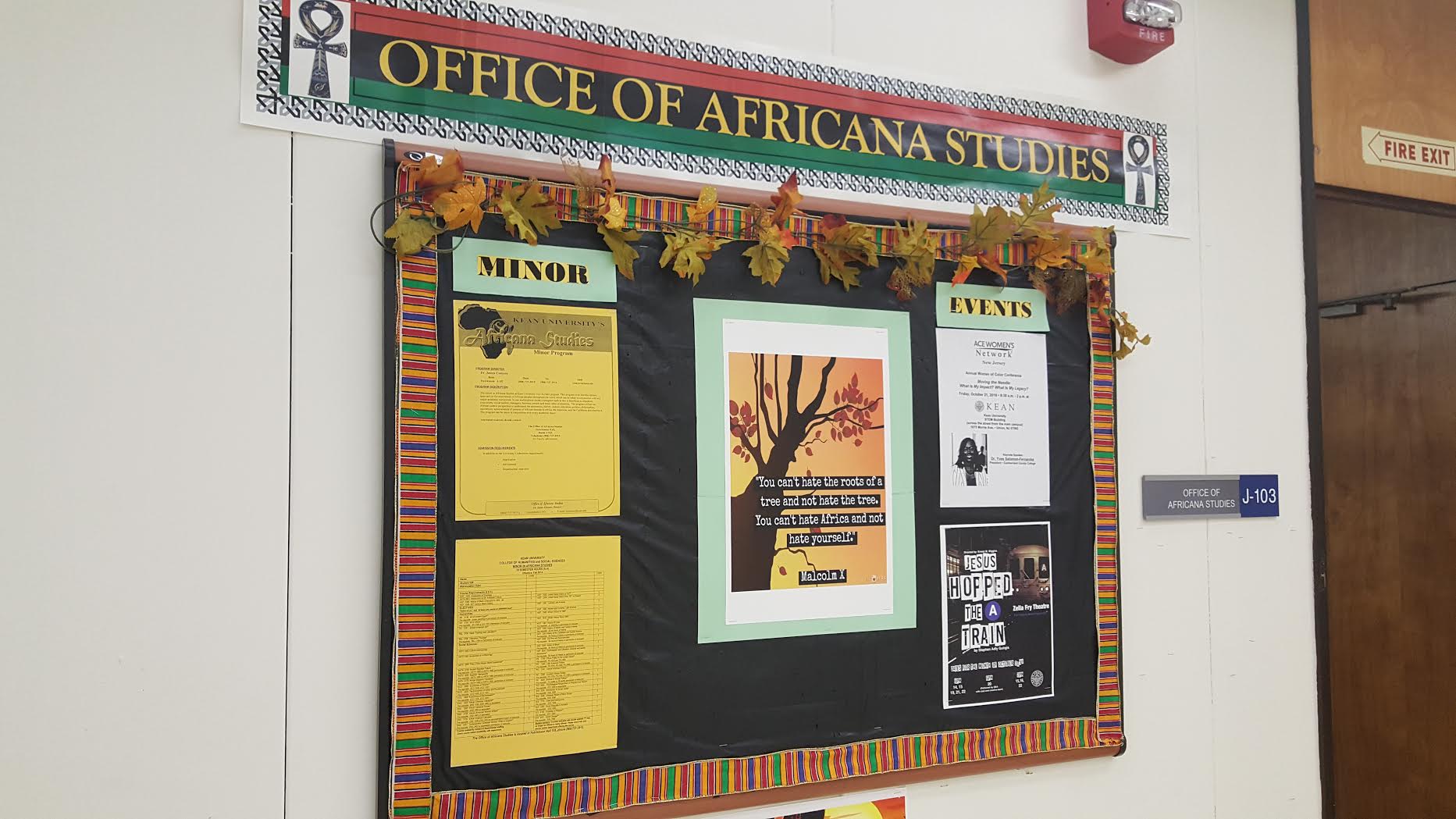
By T. Celeste Mann
If at first you don’t succeed, try and try again.
That’s how a “collateral” program of courses since 1990 transitioned, after years of trying, into a full-fledged Africana Studies minor in fall 2014.
Students are now able to graduate with Africana Studies as an official minor on their degrees.
Despite this advance, only about 13 or 14 students have declared Africana Studies as a minor, said Dr. James Conyers, Africana Studies director since 2002.
While many students are taking Africana Studies courses, they are not aware that they must fill out a form to declare the minor so it is recognized on their degree, Conyers added.
“We have many many many students, who have yet to fill out the new form,” said Conyers.
Information about the minor as well as the form for the Africana Studies minor can be located in the Office of Africana Studies, which is housed in Hutchinson Hall, room 103. Student’s status will be updated in a matter of days, Conyers said.
“We are so new, people are still just finding out about us. So many people inquire, but don’t know where we are,” he said.
What’s more, there are no call letters for Africana Studies — the way ENG stands for English classes or COMM for communication.
Courses in Africana Studies are interdisciplinary, meaning they are offered by individual departments each semester. For example, to register for Introduction to Archeology which counts as an elective in the Africana Studies minor, you need to know that the course is listed under ANTH 1900.
Additional courses offered for the minor include African History, History of Black America to 1900, Black Theology, African American Art, Films of the African world experience and the History of Cuba.
The Africana Studies department has a total of five faculty members devoted to Africana Studies, including Dr. Conyers.
“Various professors from other departments teach courses that students need for the Africana Studies minor,” said Conyers.
Conyers highlighted two components in the Africana Studies minor. The first component is academic, and includes a total of 18 credits to complete the minor at Kean.
The second component of the minor encourages involvement in African culture by attending forums and other programs sponsored by the Africana Studies department “where we deal with all of the components of the African community,” Conyers said.
“We’re not talking specifically of the African American community. We’re talking people of the African descent,” he said. “Whether they’re continental Africans, Africans from Jamaica, or Africans from America, or the Barbados, or Africans from South America. There are many places who don’t think they’re African.”
Many think the Africana Studies minor is an entity just for and about African Americans.
“It is not! The Africana Studies minor or department, for that matter, is an entity for all Africans,” Conyers said. “It doesn’t matter where the African person comes from….It is open to every and anyone who takes interest in the particular study.”
Kean has offered courses in Africana Studies for many years, but until recently the program amounted to what Conyers described as a “weak minor” because it wasn’t an approved academic minor.
“I’m proud of the progress we have made, considering we are still new. However, I’m disappointed because we could have been a minor long ago,” said Conyers.
Conyers, who first started at Kean University in 1990, said that the department has had many forums open to the campus community over the years. Those included a program on Africans and the criminal justice system, as well as special speakers such as award-winning poet Amiri Baraka. A variety of lectures have dealt with racism, as well as questions of identity. In many cases, professors from other colleges have served as speakers.
The forums, which are voluntary and open to all majors touch on issues that might not be addressed in classes.
“Our academic forums deal with all of the pressing and not-so-pressing issues of all of the African people-everywhere,” says Conyers.
In November, the Africana Studies department will feature a three-day lecture series on health and wellness in the African and African American community. The series includes a lectures titled “Mental Illness and People of African Descent” on Nov. 15; “Getting to the Heart of It All” on Nov. 16; and on Nov. 17, “Black Women’s Health Study.”
The Office of Africana Studies is also part of Kean’s African Graduation, which is a celebration for Kean graduates of African heritage.
Vice President of Student Affairs Janice Murray-Laury was the primary founder of the ceremony, Dr. Conyers said. This year’s African Graduation Ceremony will have the poet, Sonia Sanchez as the guest speaker. The ceremony will take place on April 29, 2017 at 4 p.m. in the Wilkins Theater.
“The primary purpose is to give special honor and respect to our own people,” Dr. Conyers said. “We want to honor our own people in our own special way.”
The Africana Studies department will continue to do just that, with intentions of one day becoming a major.
“Yes. We intend for it to be. But first we have to let the dust settle on the minor,” he said.

You must be logged in to post a comment.